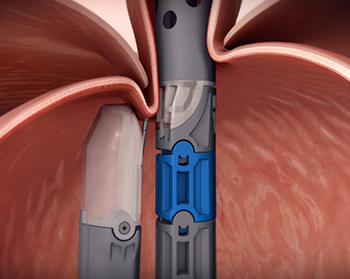
Gastroesophageal Reflux Disease (GERD): Understanding the Problem
Gastroesophageal Reflux Disease (GERD) is a widespread digestive disorder affecting many adults worldwide. It occurs when the muscular valve separating the esophagus (food pipe) and stomach weakens or malfunctions, allowing stomach contents to leak back up into the esophagus. This backflow of acid (reflux) irritates the esophageal lining, causing common symptoms like:
- Burning sensation in the chest (heartburn)
- Chest pain
- Difficulty swallowing
- Chronic cough
Treatment Options for GERD
Traditionally, GERD treatment relies on medications like antacids and Proton Pump Inhibitors (PPIs) to neutralize stomach acid or reduce its production. However, these medications might not be suitable for everyone, and GERD can persist or worsen in some cases. In these situations, Dr. Ashish Gandhi, a gastroenterologist at Gandhi Hospital in Aurangabad, may recommend endoscopic therapy for GERD.
GERD Endoscopy: A Minimally Invasive Approach
Endoscopic therapy for GERD utilizes advanced technology to address the root cause of the problem. Here’s an overview of the procedure performed at Gandhi Hospital:
- General Anesthesia: You’ll be administered general anesthesia for comfort during the procedure.
- GERDx® System Insertion: Dr. Gandhi will use the innovative GERDx® system, inserted into your stomach through the endoscope.
- Esophageal Endoscopy: Another endoscope is passed through the esophagus to visualize the device and the junction between the esophagus and stomach.
- Endo-clip Application: Dr. Gandhi will then use the GERDx® system to tighten the lower esophageal sphincter (LES) with endo-clips. This strengthens the valve, preventing acid reflux.
Benefits of Endoscopic GERD Treatment
Endoscopic therapy for GERD offers several advantages over traditional treatment methods:
- Minimally Invasive: Unlike surgery, this procedure is minimally invasive, eliminating the need for major incisions.
- Same-Day Discharge: It’s typically a day procedure, allowing you to return home on the same day.
- Reduced Reliance on Medication: Endoscopic therapy aims to address the underlying cause, potentially reducing or eliminating the need for long-term PPI use and their associated side effects.
- Improved Quality of Life: Effective GERD treatment can significantly improve your quality of life by alleviating symptoms and allowing you to enjoy a wider range of foods and activities.
Post-Treatment Care and Follow-up
Following the procedure, Dr. Gandhi will provide specific dietary and lifestyle recommendations to support your body’s recovery and prevent future reflux episodes. These might include maintaining a healthy diet, avoiding trigger foods, and engaging in regular physical activity. A follow-up appointment will be scheduled to ensure a successful outcome with no complications.
